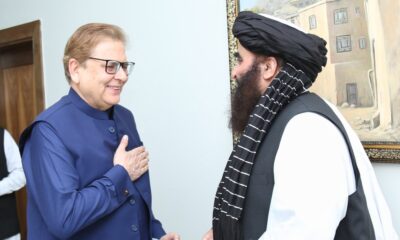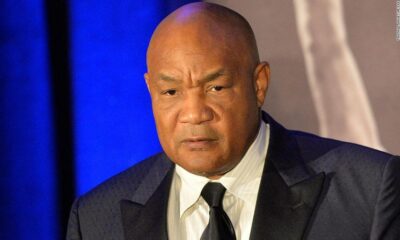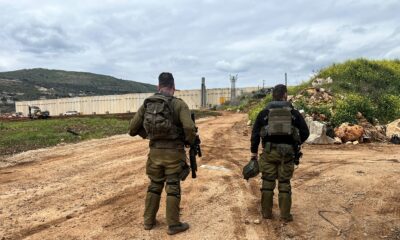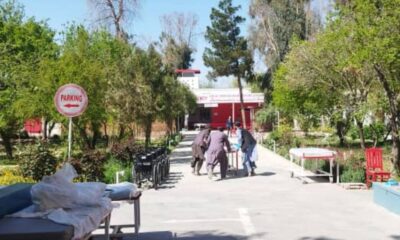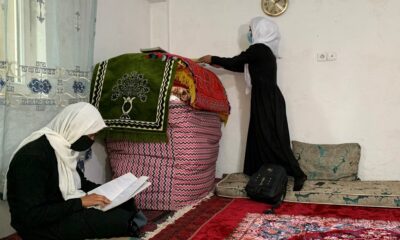Science & Technology
SpaceX capsule heads to space station ferrying NASA crew and Russian
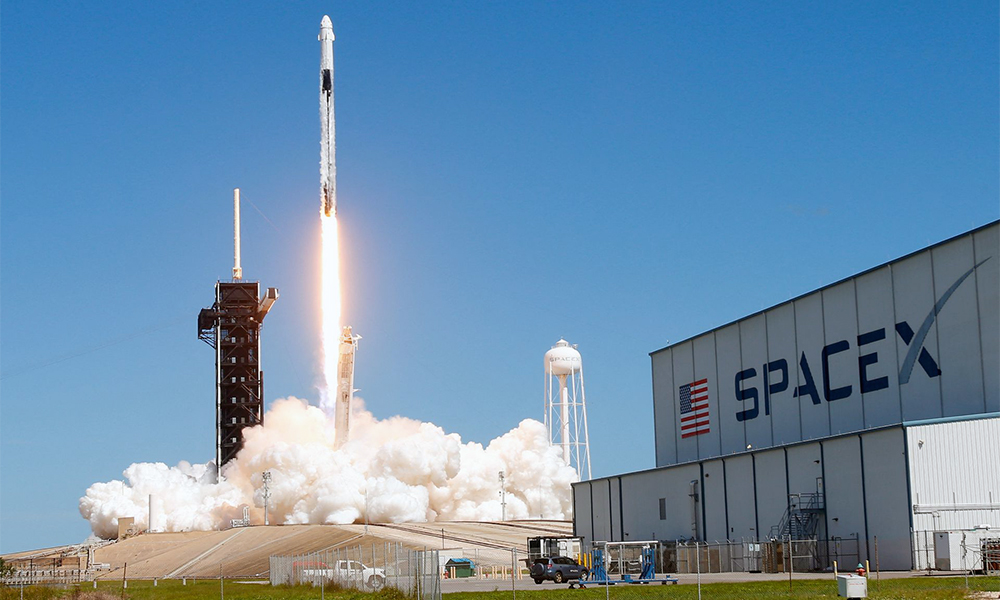
A SpaceX rocket soared into orbit from Florida on Wednesday carrying the next long-term International Space Station crew, with a Russian cosmonaut, two Americans and a Japanese astronaut flying together in a demonstration of U.S.-Russian teamwork in space despite Ukraine war tensions, Reuters reported.
A high-ranking official of the Russian space agency Roscosmos said shortly after the launch that the flight marked “a new phase of our cooperation” with the U.S. space agency NASA.
According to the report the SpaceX launch vehicle, consisting of a Falcon 9 rocket topped with a Crew Dragon capsule dubbed Endurance, lifted off into clear skies at noon EDT (1600 GMT) from NASA’s Kennedy Space Center in Cape Canaveral. The two-stage, 23-story-tall Falcon 9 ascended from the launch tower as its nine Merlin engines roared to life in billowing clouds of vapor and a reddish-orange fireball.
The mission is notable for the inclusion of Anna Kikina, 38, the lone female cosmonaut on active duty with Roscosmos, making it the first spaceflight with a Russian launched from U.S. soil in two decades. As the spacecraft entered Earth orbit, Kikina radioed her thanks to NASA, Roscosmos and their International Space Station (ISS) partners for “giving us this great opportunity.”
“We’re so glad to do it together,” Kikina said.
Kikina, who had trained in the United States for the flight since spring 2021, was essentially swapping places with a NASA astronaut who took her seat aboard a Russian Soyuz flight to the ISS last month under a new ride-sharing deal signed by NASA and Roscosmos in July.
About nine minutes after Wednesday’s launch, the rocket’s upper stage delivered the Crew Dragon into a preliminary orbit as it streaked through space at nearly 16,000 miles per hour (27,000 kph). The reusable lower-stage booster flew itself back to Earth and landed safely on a drone recovery vessel at sea.
The four crew members and their autonomously flying capsule were due to reach the ISS in about 29 hours, on Thursday evening, to begin a 150-day science mission aboard the orbital laboratory some 250 miles (420 km) above Earth, Reuters reported.
The mission, designated Crew-5, marks the fifth full-fledged ISS crew NASA has flown aboard a SpaceX vehicle since the private rocket venture founded by Tesla (TSLA.O) CEO Elon Musk began sending U.S. astronauts aloft in May 2020.
The team was led by Nicole Aunapu Mann, 45, who became the first Native American woman sent to orbit by NASA and the first woman to take the commander’s seat of a SpaceX Crew Dragon.
Moments after reaching orbit, as mission control wished the crew “Godspeed,” Mann radioed back, “Awesome. Thank you so much to the Falcon team. Whew! That was a smooth ride uphill.”
Mann, a U.S. Marine Corps colonel and combat fighter pilot, is also among the first group of 18 astronauts selected for NASA’s upcoming Artemis missions aimed at returning humans to the moon later this decade.
The designated pilot was Mann’s fellow spaceflight rookie Josh Cassada, 49, a U.S. Navy aviator and test pilot with a doctorate in high-energy particle physics. Rounding out the crew from Japan’s space agency JAXA was Koichi Wakata, 59, a robotics expert making his fifth voyage to space.
The team will be welcomed by seven existing ISS occupants – the Crew-4 team consisting of three Americans and an Italian astronaut – as well as two Russians and the NASA astronaut who flew with them to orbit on a Soyuz flight.
The new arrivals are set to conduct more than 200 experiments, many focused on medical research ranging from 3-D “bio-printing” of human tissue to a study of bacteria cultured in microgravity, Reuters reported.
ISS, the length of a football field, has been continuously occupied since 2000, operated by a U.S.-Russian-led consortium that includes Canada, Japan and 11 European countries. It was born in part to improve relations between Washington and Moscow following the Soviet Union’s collapse and the end of Cold War rivalries that spurred the original American-Soviet space race.
NASA-Roscosmos relations have been tested since Russia invaded Ukraine in February and the United States imposed sweeping sanctions against Moscow.
At a post-launch NASA-SpaceX briefing on Wednesday, Sergei Krikalev, head of human spaceflight for Roscosmos, said he agency chief Yuri Borisov were seeking to ease tensions after Borisov’s predecessor, Dmitry Rogozin, raised questions about the future of the ISS partnership.
Krikalev cited bilateral teamwork in space dating back to the Apollo-Soyuz era in 1975, saying, “We started our cooperation many years ago, over 40 years ago, and will continue our cooperation as long as I can imagine.”
The July crew-exchange deal paved the way for resuming routine joint U.S.-Russian flights to the ISS that had begun during the space shuttle era and continued after shuttles ceased flying in 2011. From then until SpaceX began offering crewed launch services nine years later, Soyuz was the only avenue to orbit for U.S. astronauts.
Science & Technology
‘Massive cyberattack’ brings down Elon Musk’s X
Digital Trends reported Tuesday that there are reports suggesting X is still having issues
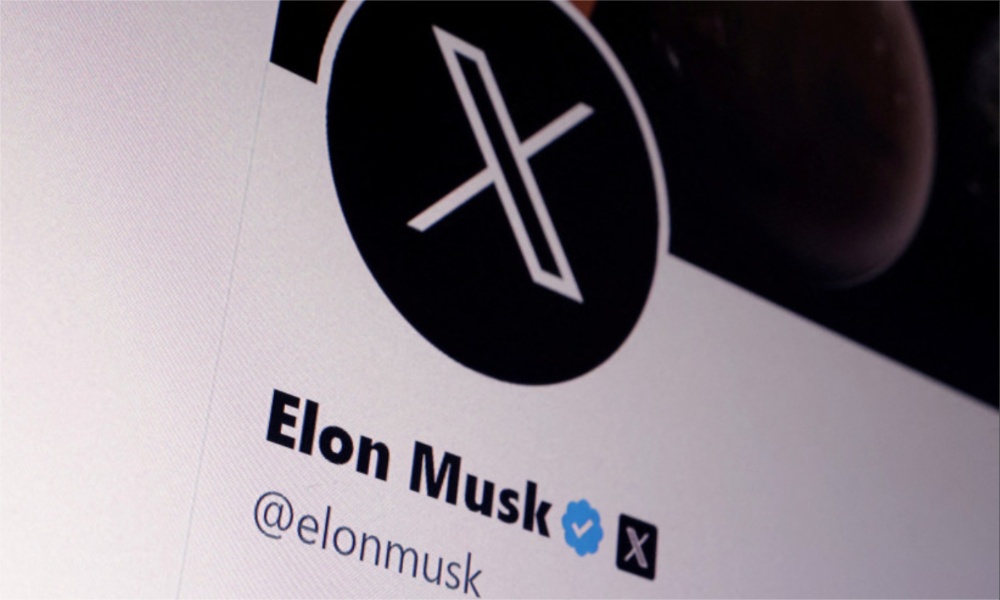
Social media platform X went down intermittently on Monday, with owner Elon Musk blaming an unusually powerful cyberattack.
“We get attacked every day, but this was done with a lot of resources. Either a large, coordinated group and/or a country is involved,” Musk said in a post on X on Monday.
He did not clarify exactly what he meant by “a lot of resources” and his comments drew skepticism from cybersecurity specialists, who pointed out that attacks of this nature — called denials of service — have repeatedly been executed by small groups or individuals.
X faced intermittent outages, according to Downdetector, Reuters reported.
Digital Trends meanwhile reported Tuesday that there are reports suggesting X is still having issues.
Internet industry experts have said X was hit by several waves of ‘denial of service’ throughout Monday.
Musk said in an interview with Fox Business Network’s Larry Kudlow the cyberattack came from IP addresses originating in the Ukraine area.
An industry source told Reuters he disputed Musk’s account, saying that large chunks of the rogue traffic bombarding X could be traced back to IP addresses in the United States, Vietnam, Brazil and other countries, and that the amount of rogue traffic coming directly from Ukraine was “insignificant.”
In any case, denial of service attacks are notoriously hard to trace back to their authors and the IP addresses involved rarely provide any meaningful insight into who was behind them, Reuters reported.
Musk has joined U.S. President Donald Trump, whom he serves as an adviser, in criticizing Ukraine’s continued efforts to fight off a Russian invasion.
Musk said on Sunday that Ukraine’s front line “would collapse” without his Starlink satellite communications service, though he said he would not cut off Ukraine’s access to it.
Science & Technology
NASA says ‘city killer’ asteroid has a 3.1 % chance of striking Earth in 2032
Despite the rising odds, experts say there is no need for alarm
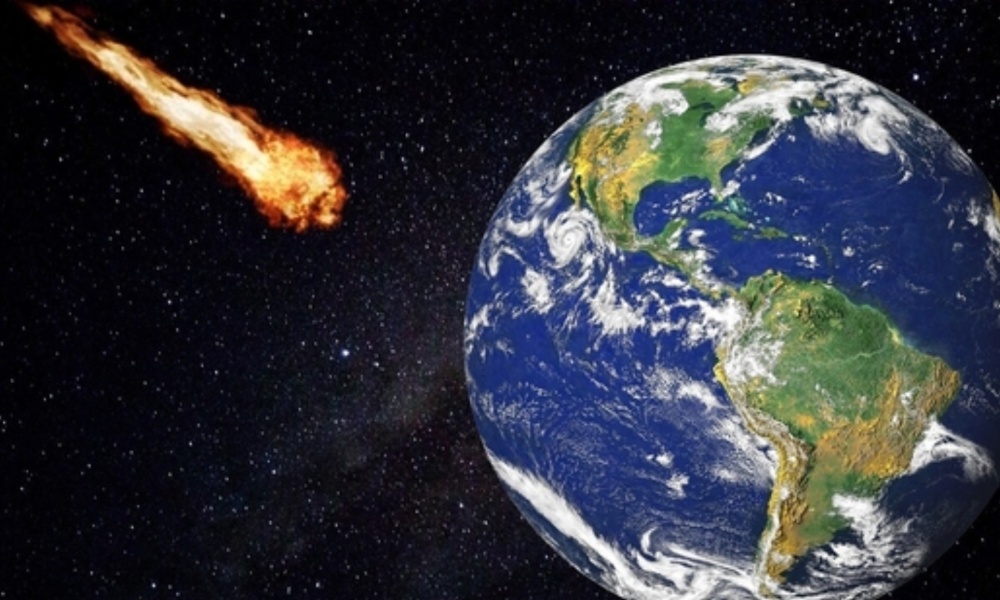
An asteroid that could level a city now has a 3.1-percent chance of striking Earth in 2032, according to NASA data released Tuesday — making it the most threatening space rock ever recorded by modern forecasting.
Despite the rising odds, experts say there is no need for alarm. The global astronomical community is closely monitoring the situation and the James Webb Space Telescope is set to fix its gaze on the object, known as 2024 YR4, next month.
“I’m not panicking,” Bruce Betts, chief scientist for the nonprofit Planetary Society told AFP.
“Naturally when you see the percentages go up, it doesn’t make you feel warm and fuzzy and good,” he added, but explained that as astronomers gather more data, the probability will likely edge up before rapidly dropping to zero.
2024 YR4 was first detected on December 27 last year by the El Sauce Observatory in Chile.
Astronomers estimate its size to be between 130 and 300 feet (40–90 meters) wide, based on its brightness. Analysis of its light signatures suggests it has a fairly typical composition, rather than being a rare metal-rich asteroid.
The International Asteroid Warning Network (IAWN), a worldwide planetary defense collaboration, issued a warning memo on January 29 after the impact probability had crossed one percent. Since then, the figure has fluctuated but continues to trend upward.
NASA’s latest calculations estimate the impact probability at 3.1 percent, up from 1.6 percent last month, with a potential Earth impact date of December 22, 2032.
Richard Moissl, head of the European Space Agency’s planetary defense office, which puts the risk slightly lower at 2.8 percent told AFP that this “is not a crisis at this point in time. This is not the dinosaur killer. This is not the planet killer. This is at most dangerous for a city.”
If the risk rises over 10 percent, IAWN would issue a formal warning, leading to a “recommendation for all UN members who have territories in potentially threatened areas to start terrestrial preparedness,” explained Moissl.
Unlike the six-mile-wide (10-kilometer-wide) asteroid that wiped out the dinosaurs 66 million years ago, 2024 YR4 is classified as a “city killer” — not a global catastrophe, but still capable of causing significant destruction.
Its potential devastation comes less from its size and more from its velocity, which could be nearly 40,000 miles per hour if it hits.
If it enters Earth’s atmosphere, the most likely scenario is an airburst, meaning it would explode midair with a force of approximately eight megatons of TNT — more than 500 times the power of the Hiroshima bomb.
But an impact crater cannot be ruled out if the size is closer to the higher end of estimates, said Betts.
The potential impact corridor spans the eastern Pacific, northern South America, the Atlantic, Africa, the Arabian Peninsula, and South Asia — though Moissl emphasized it is far too early for people to consider drastic decisions like relocation.
The good news: there’s ample time to act.
NASA’s 2022 DART mission proved that spacecraft can successfully alter an asteroid’s path, and scientists have theorized other methods, such as using lasers to create thrust by vaporizing part of the surface, pulling it off course with a spacecraft’s gravity, or even using nuclear explosions as a last resort. — Agence France-Presse
Science & Technology
Panjshir will soon be connected to national fiber optic network
The statement said that this project covers a 36-kilometer route from Gulbahar to Bazarak, and the districts of Shatal, Anaba and Rukha will also benefit from fiber optic services.
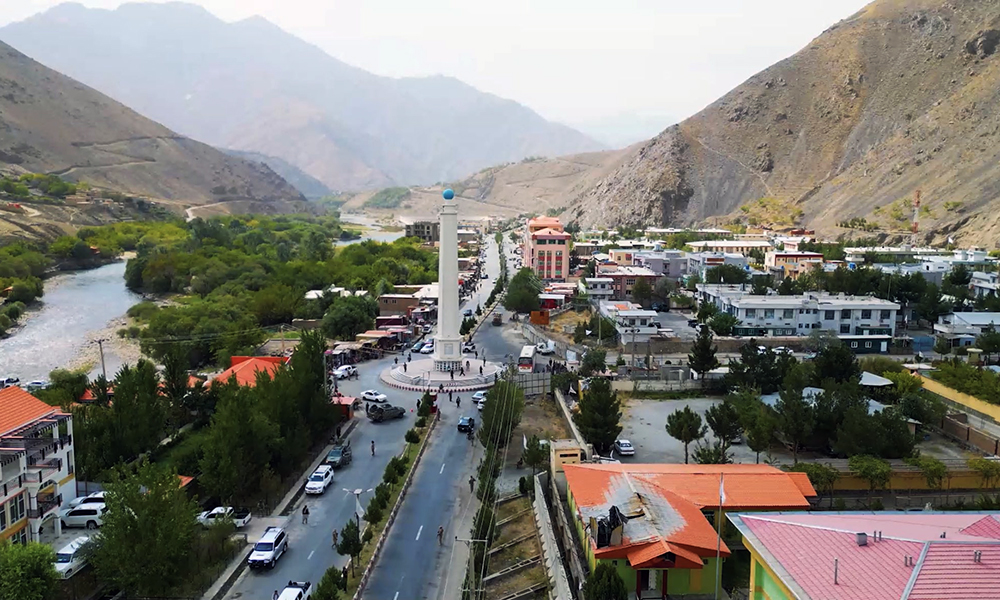
The Panjshir provincial media office said in a statement on Wednesday, February 1 that practical work was to connect the province to fiber optic will begin within the next month.
The statement said that this project covers a 36-kilometer route from Gulbahar to Bazarak, and the districts of Shatal, Anaba and Rukha will also benefit from fiber optic services.
The statement added that the project is being implemented by Afghan Wireless, Afghan Telecom and ICG companies as a result of the efforts of the Panjshir provincial administration and the special attention of the leadership of the Ministry of Communications and Information Technology of the Islamic Emirate of Afghanistan.
-

 Sport4 days ago
Sport4 days agoIPL 2025 celebrates 18 years of immense success
-
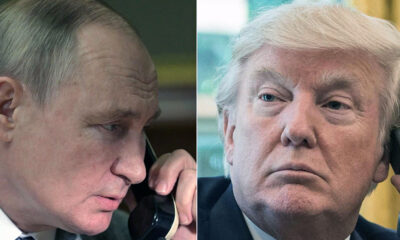
 World3 days ago
World3 days agoPutin agrees to 30-day halt on energy facility strikes in Ukraine
-
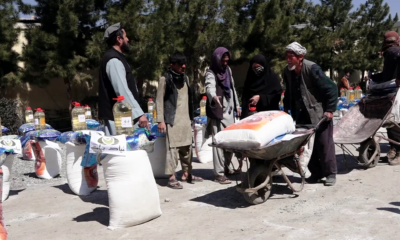
 Latest News4 days ago
Latest News4 days agoBayat Foundation helps needy families in Kabul during Ramadan
-

 Latest News3 days ago
Latest News3 days agoTorkham crossing to reopen after 25-day shutdown
-
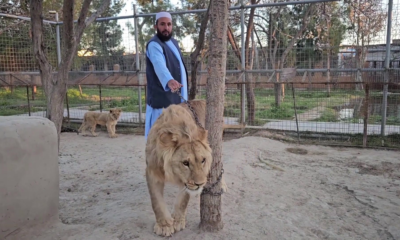
 Latest News3 days ago
Latest News3 days agoHelmand environmental department opens new Zoo
-

 Latest News4 days ago
Latest News4 days agoAfghan-Pakistan talks to reopen Torkham border ‘end on positive note’
-
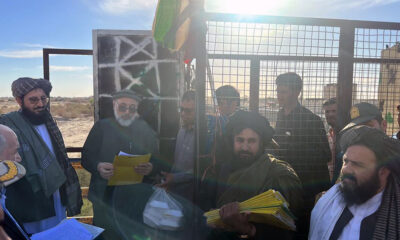
 Latest News2 days ago
Latest News2 days agoAfghan prisoners in Iran sent home
-

 Tahawol5 days ago
Tahawol5 days agoTahawol: Discussion on India, Pakistan trading accusations


